What Is a Platform?
A platform encompasses a span of technologies involving different engineering stakeholders, for example, voice analytics software that has a front-end dev team, as well as an AI dev team. A platform may be physical or virtual infrastructure and networking. A company’s platform can include many tools such as telemetry, container deployment, Kubernetes, CDNs, and CI/CD tooling.
The platform is essentially a technology stack and environment within which organizations build, deploy, and deliver the applications.
What is Platform Team?
In a nutshell, a platform team is a team that creates the foundational layers and core building blocks of a company’s products. More concretely a platform can be at different levels of granularity: Infrastructure that runs your stuff. Development environment and tools that help write/test/run code.
Platform teams build and maintain a portfolio of technologies that maximize engineering and networking teams’ efficiency, and establish best practices so the company can scale more easily.
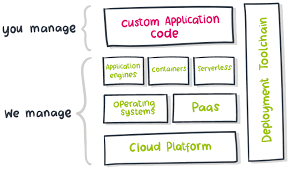
Origin Of Platform Ops
Platform Ops has grown out of the popularity of DevOps. It aims to streamline processes involved in scaling a DevOps practice, allowing developers to focus on development and firms to focus on their customers, rather than their processes.
What is DevOps?
What is Platform Ops?
PlatformOps is about supporting a culture change with the right organizational structure.
Platform Ops is a detailed program addressing the intricacies of operating, maintaining, monitoring, and troubleshooting an OutSystems infrastructure with right culture change.
The goal of Platform Ops is to make a multi-cloud control plane to create, manage and deploy any kind of resource easily and centrally wherever you want for DevOps Team.
Platform Ops is a team who is flexible and allows DevOps team to create any kind of resource from a single front-end: from applications, to databases, microservices in every language, machine learning models and websites. All you have to do is choose a template, edit it, make as many variants as you need and put it into production.
Platform Ops is an approach that aims to instil more structure into DevOps practices across an organisation so they can scale more efficiently.
To adopt Platform Ops, organisations need to form a dedicated team that maintains the internal marketplace of resources that acts as a self-service platform. The platform should include everything developers need to build an automated DevOps value stream. Rather than worrying about infrastructure and operations tooling, developers can focus on what they do best – building software.
The role of a Platform Ops team is to provide operational services to development teams in a way that allows them to go on to self-serve.
Platform Ops isn’t a return to centralised IT. No one wants that. Years of IT controlling every tech resource within an organisation gave rise to shadow IT in the first place. Too much central control would frustrate developers even more and decrease the level of collaboration on teams.
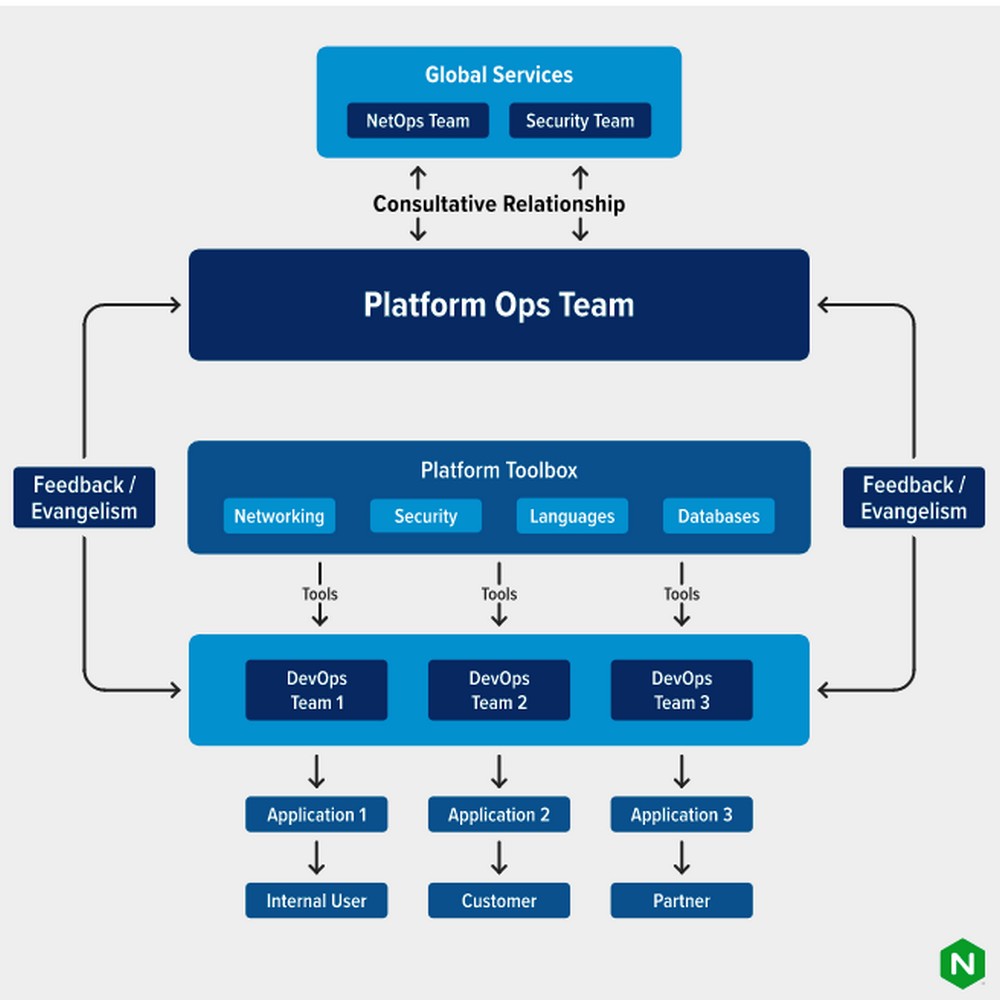
Platform Ops Team
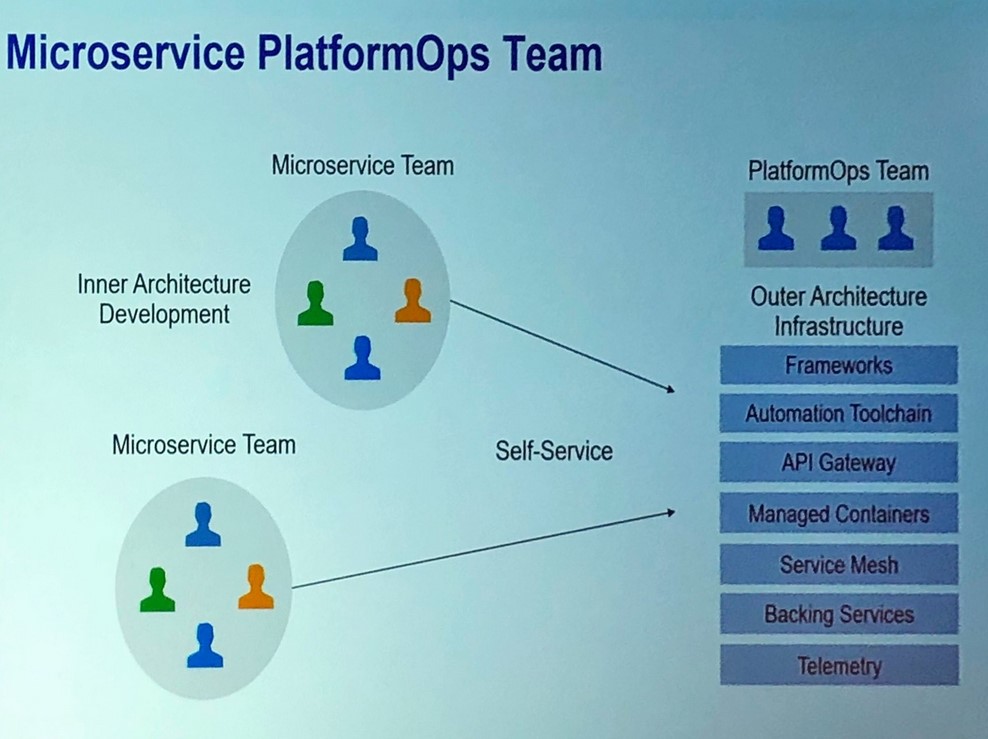
Why Is Platform Ops Needed?
Platform ops is needed when a company has multiple DevOps teams, each creating their own applications and selecting their own tools for traffic management, visibility, telemetry, security, and resiliency. Platform ops is necessary for scaling DevOps as with no one to supervise or create standard practices and tools, growth or cooperative operations between teams could become uncoordinated.
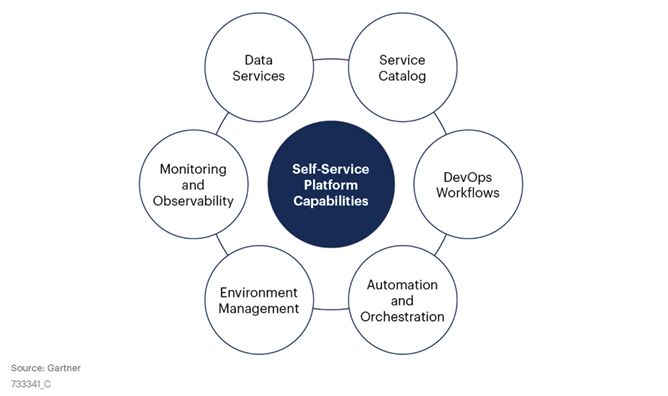
What Platform Ops enables
Making the concept work requires that organisations balance rules with the freedom to innovate. While development teams still need the flexibility to do their work, Platform Ops teams should provide systems to ensure consistency and better governance.
By using Platform Ops, firms are able to provide a self-service platform that enables their developers to quickly, reliably and safely deploy code. And at the same time it ensures best practice, governance, and access to the latest technologies, are baked in.
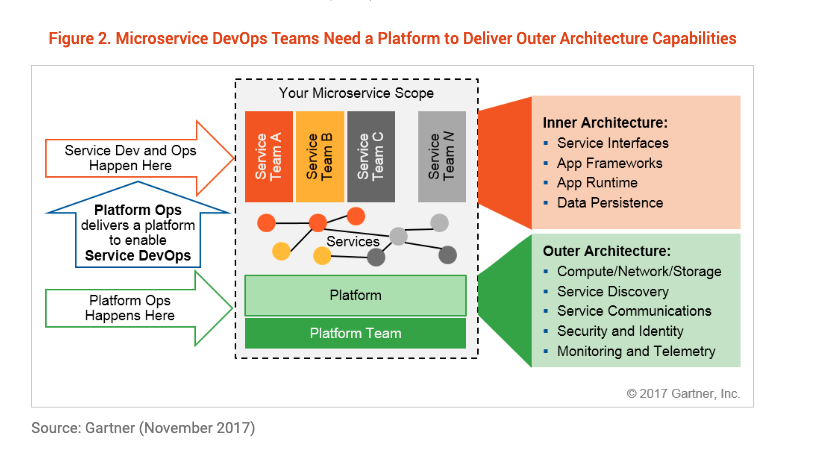
Developers need to control things that are part of their workflows – like continuous integration systems, source control platforms and how to control integration tests. The idea is not to limit their creativity and their ability to work independently. Giving them control and a say in the day-to-day.
Platform Ops, on the other hand, should control things where there is less room for flexibility. This includes infrastructure automation, artifact repository, alerting and emergency response, infrastructure and application security, CI/CD and overall metrics.
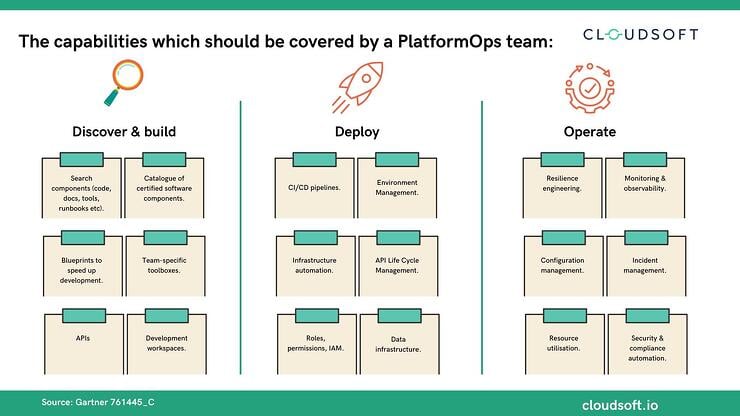
Summary
If DevOps is about automation and collaboration, Platform Ops enables teams to do what they do better. Separating the core business from the platform that the organisation uses to build the core business simplifies processes and enables the DevOps practice to scale. It makes it easier to integrate best practices, and it provides the consistency that stakeholders need to make DevOps culture a reality across organisations.
Platform ops is an approach to scaling DevOps that involves dedicating a team to the operation of a shared self-service platform. Technical professionals should use a product mindset to establish a platform that enables I&O to support agile development teams to deliver higher quality faster.
Conclusions
- Platforms provide a common rule book for everyone to work from.
- Platforms must be light-weight, self-service and a Golden Path.
- Environment-as-Code is an innovative way to build platforms in complex environments.
- Environment-as-Code delivers ‘living platforms’ which mature with your PlatformOps efforts.
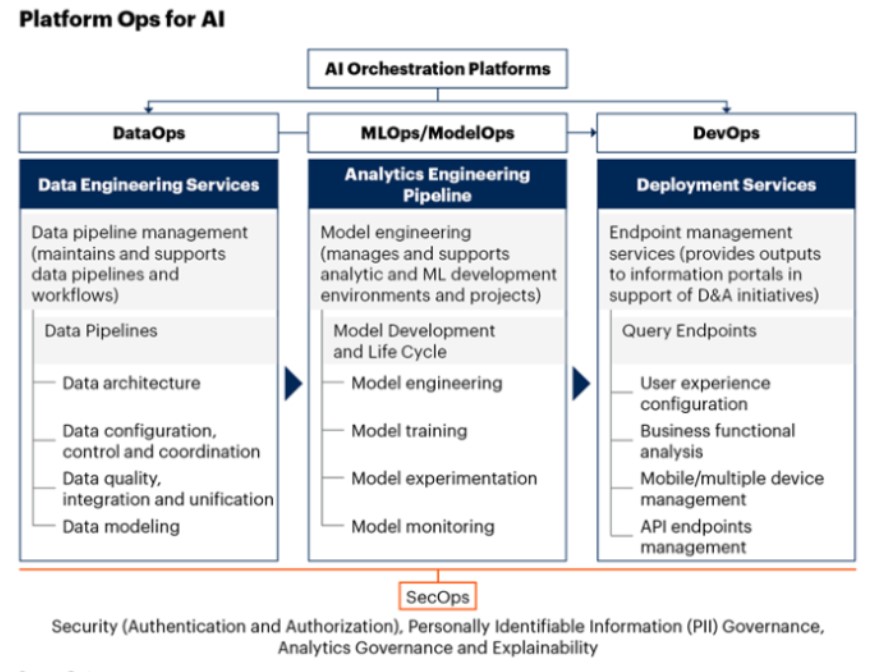
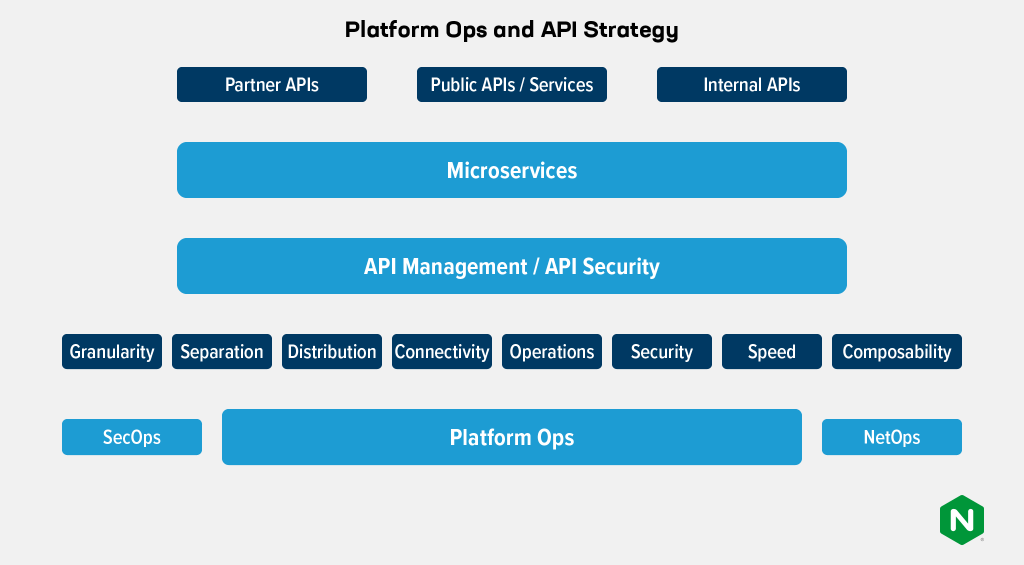
- Apache Lucene Query Example - April 8, 2024
- Google Cloud: Step by Step Tutorials for setting up Multi-cluster Ingress (MCI) - April 7, 2024
- What is Multi-cluster Ingress (MCI) - April 7, 2024

